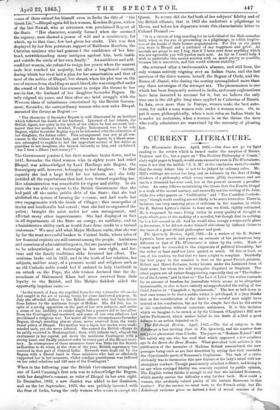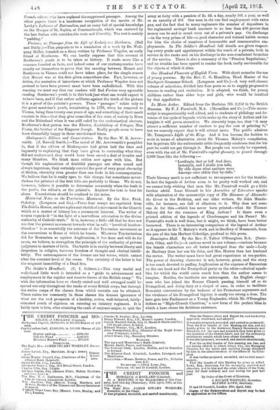The. 'Edinburgh Review. April, 1i365.—The list of subjects in the
Edirtrgli is less inviting than in The Quarterly, and the number does noWove pleasanter than it looks. The paper on "Madame Roland "will -auk satisfy any one who has read that which appeared a few numbers ago in La Revue des Deer Mondes. What provoked both articles is the publication of the memoirs of Madame Roland unmutilated, the new passages being such as are best described by saying that they resemble the objectionable parts of Rousseau's Confessions. The task of a critio obviously was to harmonize this new feature of the lady's mind with her exemplary conduct. Though passionately attached to Buzot, and living in an age when conjugal fidelity was scarcely required by public opinion, The English writer thinks it enough to gay that she imitated Rousseau, which merely carries the difficulty a step farther back. How could a woman, who evidently valued purity of life imitate Rousseau in this matter ? For the answer we must turn to the French critic, but The Edinburgh reviewer gives us instead a deal of moral censure of the
French oditora who have replaced the suppressed passages. Among the other papers there is a handsome recognition of the merits of Mr.
Iiecky'e Infbience of Rationalism, and an essay full of special knowledge ou the Mosque of St. Sophia, at Constantinople, which was restored by the late Sultan with considerable taste and liberality. The rest is mainly "padding."































 Previous page
Previous page